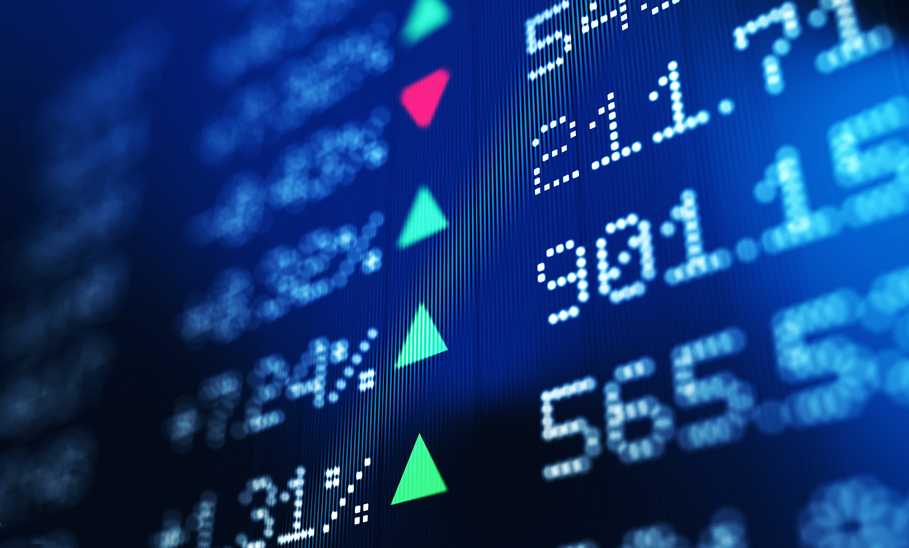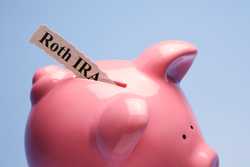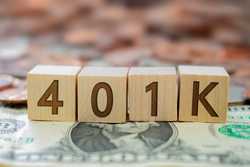How Stock Prices Are Determined: The Factors that Affect Share Prices of Listed Companies

Our evaluations and opinions are not influenced by our advertising relationships, but we may earn a commission from our partners’ links. This content is created by TIME Stamped, under TIME’s direction and produced in accordance with TIME’s editorial guidelines and overseen by TIME’s editorial staff. Learn more about it.
Stock prices seem to change even more than the weather does.
A price is attached to each share of stock in a publicly traded company — a company whose stock is bought and sold on exchanges like the New York Stock Exchange and the Nasdaq market. For each share they buy, an investor owns a piece of that company.
In large part, supply and demand dictate the per-share price of a stock. If demand for a limited number of shares outpaces the supply, then the stock price normally rises. And if the supply is greater than demand, the stock price typically falls.
INVESTMENT AND INSURANCE PRODUCTS ARE: NOT A DEPOSIT • NOT FDIC INSURED • NO BANK GUARANTEE • MAY LOSE VALUE
Supply and demand is a key factor in determining stock prices.
“The price of a stock is determined by how many people want the stock and how much of it there is,” explained William Haight, a director at Capital Choice Financial Group in Phoenix. “If more people want to buy a stock, then the price will go up. But if more people want to sell, then the price will go down.”
So, let’s say investors are clamoring to buy shares of ABCD Inc., a hypothetical energy company. On Monday, the stock might be priced at $35 a share. A day later, a Wall Street analyst publishes an optimistic report about the future of the energy sector. This positive outlook triggers more demand for ABCD stock, pushing the price up to $40 a share. So, in just one day, the stock price has risen 14%.
On the flip side, let’s look at RXYZ Co., a hypothetical healthcare company. On Monday, the stock might be sitting at $45 a share. Then the following day, a Wall Street analyst issues a pessimistic report about the future of the healthcare sector, leading some investors to dump their shares of RXYZand the stock price to drop to $40 a share. That’s a one-day decline of 11%.
Supply and demand isn’t the only driver of fluctuations in stock prices. In fact, several factors can work together to prompt up-and-down price swings.
A number of things going on at a company can lead to an increase or decrease in its stock price.
For instance, if RXYZ reports solid financial results for the third quarter, investors may gain confidence in the company and decide to scoop up more shares. This heightened demand can spark a rise in the stock price, according to Haight. Conversely, if RXYZ delivers bad news about its third-quarter financial performance, investors may lose confidence in the company and unload some or all of their RXYZ shares.
Other company happenings that could lead to a jump or drop in stock price include:
Current economic conditions can greatly influence stock prices.
For example, if the U.S. Bureau of Labor Statistics releases figures showing that the unemployment rate declined and the country added a robust number of jobs the previous month, investors may be more confident about the direction of the economy. In turn, they might be more inclined to pour money into the stock market, lifting up share prices for certain companies.
By contrast, dismal numbers for job growth and the unemployment rate might rattle some investors, prompting a stock sell-off that drives down share prices.
More broadly, stock prices might go up when investors feel positive about economic growth and down when investors sense a recession is underway or on the horizon.
Inflation, an increase in the overall cost of goods and services, reduces the buying power of businesses and consumers.
So, if the inflation rate is climbing, investors might become jittery about the economy and sell some of their stock. On the other hand, if the inflation rate is easing, investors may be more enthusiastic about the economy and step up their stock-buying activity. In other words, the movement of inflation in a positive or negative direction can affect stock prices.
Also, high inflation might drag down a company’s financial performance due to the higher cost of buying goods and services. An uptick in expenses can eat into a company’s profits, making the company’s stock less appealing to investors and triggering a decline in the stock price.
Interest rates play a huge part in how much it costs companies to borrow money. If interest rates are high, that could bump up corporate borrowing expenses. As a result, corporate earnings could suffer, causing stock prices as a whole to dip.
Furthermore, higher interest rates might make stocks less attractive than certificates of deposit (CDs), bonds and other investments whose yields benefit from higher interest rates. Should investors jump ship, stock prices will sag. If, however, interest rates are lower, the reverse could happen. Cheaper borrowing rates might boost earnings prospects and lift share prices.
A healthy level of consumer spending can lift sales and earnings, and subsequently share prices, for a whole host of publicly traded companies. “Consumer spending is a key driver of short-run economic growth in the U.S. economy,” says the Congressional Research Service.
By the same token, weakness in consumer spending can put a dent in corporate sales, earnings, and stock prices.
Geopolitical risks, such as wars and bombings, can cause unrest not just in various nations but also in the stock market.
Data from LPL Research shows that from 1941 to 2020, the S&P 500 stock index fell an average of 5% during 20 major geopolitical crises, including the attack on Pearl Harbor, the assassination of President John F. Kennedy and the 9/11 terrorist attacks. But, as LPL Research points out, the index rebounded within an average of 50 days after the crisis.
In line with that finding, research published by the International Monetary Fund indicates that from 1985 to 2020, geopolitical risks contributed to a decrease in stock returns ranging from 10.53% to 42.14%. Researchers came to that conclusion after examining stock returns in 22 countries.
Haigh noted that actions by large institutional investors such as mutual funds and hedge funds can contribute to shifts in stock prices.“Since these investors hold large amounts of shares, their buying and selling activity can have a significant impact on stock prices,” he said.
Stock prices change moment by moment in response to any kind of development, including official company news, speculation, or economic data released by the government. Previously, it took a while for new information to be reflected in share prices. However, now with electronic stock trading, transactions can be made quickly with a few clicks of a button.
“When investors learn new information about a company, it can make them want to buy or sell its stocks,” Haight said. “If more people buy the stock, then the price goes up. If more people sell the stock, then the price goes down.”
“Information about a company can change how people feel about owning the company’s stock,” he added. “If the company has reported bad earnings, people may want to sell their shares. But if the company is doing something new that is exciting, would-be sellers might change course and want to buy more of its shares.”
So, how can you keep up with all of the moves in the stock market? Here are four recommendations.
If you’re unsure about what’s happening in the stock market and whether to buy or sell shares, the financial advisor connected to your broker can help. These professionals closely monitor the ups and downs of the stock market and can help steer you in the right direction.
It’s important to educate yourself about the stock market.
“Investors should learn as much as they can about a company and industry before investing in stocks,” said Haight. “Investors should also know about big things that can change stock prices.”
According to Haight, while you don’t need to obsess over every little movement in the stock market, it’s worth paying attention to what’s going on with current and potential investments. This could mean reading all of the investment statements you receive, tracking stock market activity online or on an app, reviewing reports from stock brokerages and research firms, and studying reports issued by publicly traded companies.
“As an informed investor, I believe it’s important to keep a close eye on stocks and their 52-week high and low values,” Haight said. “This can offer insight into the company’s progress over time as well as any momentum they might be gathering.”
Smart investors take a long-term view of their portfolios. In other words, it’s wise to hang onto stocks through good times and bad.
Investment brokerage Edward Jones says that a $10,000 investment made in S&P 500 stocks in 1980 would have amounted to $980,911 in 2021 if the investor stuck with the market during the entire period. However, missing the 10 best days of the market during that time would have dropped the portfolio’s value by more than half to $437,902.
The price of a stock is largely determined by supply and demand. If demand is high, the price tends to go up, and if supply is high, the price tends to go down.
Haight said it’s hard to figure out when a stock’s price will go up. But you can look for clues such as the company’s financial performance or the condition of the economy. You can also pay attention to forecasts from stock market observers.
As more shares are purchased, the stock’s price will increase, depending on the level of demand, Haight explained.
“If many people want to buy a certain number of stocks and only a few are available, then each purchase has an amplified impact on price surge,” he said. “Conversely, if the demand decreases with ample supply, investing additional funds won’t cause too great of a fluctuation in share prices.”
The information presented here is created by TIME Stamped and overseen by TIME editorial staff. To learn more, see our About Us page.




